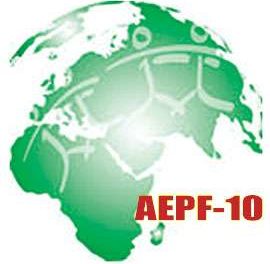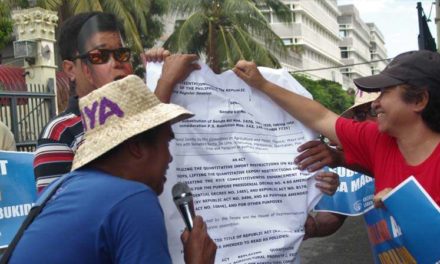By Isabelle Delforge*
An Indian participant from Tamil Nadu stands up and asks the panelists “The WSF keeps repeating that another world is possible. But what world do you want?” The workshop has gathered delegates from all over the world on the issue of people’s land rights and social change. Among the panellists, Kingkorn Narintarakul, an activist from Thailand, gives this answer “We only have one world. This is the world we live in. We have our own knowledge, our practices, our wisdom, our land. We don’t need to find another world. What we need is to reclaim our world”.
And this is precisely what several movements organising this workshop have been doing (1). In South Africa, in Brazil, in Thailand or in the Philippines, farmers have been occupying land as part of their long struggle for a genuine agrarian reform. “If the government doesn’t distribute the land, we have do to it ourselves,” said one farmer. For them, the alternative to the scandalous inequalities in land ownership is land occupation. They see it as the main driving force that allows them to feed themselves and to force political changes.
Itelvina Masioli from the Landless Workers Movement (MST) in Brazil explains this approach. “When we occupy a piece of land, we don’t only physically take the field. We also start living there, growing fruits and vegetables. We organise the communities, share the resources and look for education opportunities for our children. Land occupation is a comprehensive alternative.”
In a completely different encounter at the WSF, Felipe Van Keirsbilck, a Belgian unionist, also suggested that the WSF slogan “Another world is possible” had lost its power of mobilisation in the streets of Mumbai. “It sounds very much like a remote promise. It reminds me of the paradise that the Christians are expecting in ‘an other life’. When we see the Dalits marching in the streets, the women staging street theatres at every corner representing oppression and liberation from oppression, we realise that we now need a stronger rallying cry. People are not going to wait for another world to materialise. They are busy asserting their rights to live in this one.”
Jose Josivaldo de Oliveira from MAB, a Brazilian movement of people affected by big dams addressed thousands of Indian villagers and indigenous people at a large conference on development induced displacement organised by the National Alliance of People Movements (India). He explained that they had waited long enough to see an end to the policies of building large dams, evicting farmers from their land. His movement is now planning to open the dams and, if necessary, to break them in order to recover people’s land, livelihoods and dignity.
Encounters after encounters, speakers from different movements and sectors voiced similar approaches to social change. At a round table on food sovereignty organised by Focus on the Global South, Shaktiman Ghosh of the Hawkers Shangharsh Committee in Calcutta said that streets vendors were the alternatives to TNC’s and large distribution chains. “We are taking over the whole food chain. Street vendors in our union have started to buy products directly from farmers’ cooperatives and they sell them directly to consumers. We simply bypass the globalised food system.”
Some people regretting the lack of alternatives at the WSF might have missed all those testimonies. Actually, the feeling in Mumbai was that the alternatives are already happening everywhere, and that they are an integral part of the struggle: in the struggle for land, forest, seeds or water, in the emancipation struggle against patriarchy, in the liberation process of the oppressed.
With the strong participation of people’s movements and grassroots organisations at the WSF in Mumbai, a new wind has started blowing over the global movements. It suggests that the alternative to corporate globalisation and oppression is the actual space taken over by marginalized and affected communities. It is in the new practices and relationships that they are implementing. This movement is not so much about creating a new and ideal world, but about reclaiming an existing world, and transforming it radically.
(1) FIAN International, LRAN and FSPI
* Isabelle Delforge is a research associate with Focus on the Global South working on food sovereignty and “life without the WTO”. She organised a roundtable on food sovereignty at the WSF.








